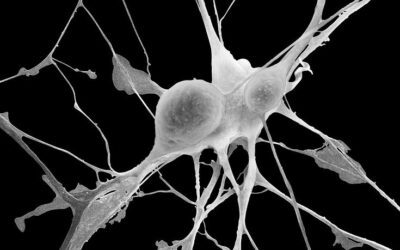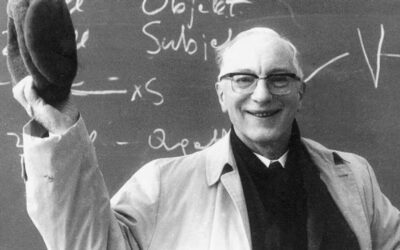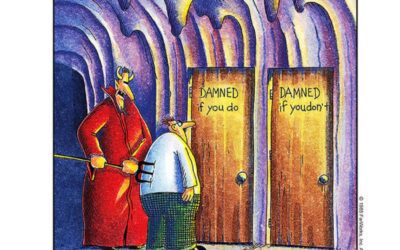 What to do about Physician Burnout as a Therapist
What to do about Physician Burnout as a Therapist
As a therapist specializing in supporting healthcare professionals, I have witnessed firsthand the devastating impact of physician burnout. The unique challenges faced by physicians, including long hours, high-stakes decision-making, and emotional strain, can take a heavy toll on their mental and emotional well-being. Burnout is not a sign of weakness or personal failure, but rather a natural response to the cumulative stress and demands of the medical profession.
In my work with physicians, I have seen the transformative power of therapy in helping them overcome burnout and rediscover a sense of purpose and fulfillment in their work. As a therapist, my role is to provide a safe and non-judgmental space for physicians to process their experiences, develop coping strategies, and build resilience in the face of ongoing challenges.
We Have a Clinician who Treats Physician Burnout at Taproot Therapy Collective Check Him out Here
Recognizing the Signs of Burnout
Recognizing the signs of burnout is the first step in addressing it. Physicians may experience a range of symptoms, both emotional and physical, that indicate they are struggling with burnout. Emotional exhaustion is a common manifestation, characterized by feelings of depletion, fatigue, and a lack of motivation. Physicians may feel emotionally drained, unable to recharge, and disconnected from their work and patients.
Depersonalization is another key symptom of burnout. Physicians may develop a cynical or detached attitude towards their patients, viewing them as objects rather than individuals. They may struggle to empathize and connect with their patients, leading to a sense of emotional distance and a loss of meaning in their work.
A decreased sense of personal accomplishment is also a hallmark of burnout. Physicians may feel like they are not making a difference, despite their best efforts. They may question their competence, feel inadequate, and lose confidence in their abilities. This can lead to a vicious cycle of self-doubt and diminished job satisfaction.
Physical symptoms of burnout can include chronic fatigue, insomnia, headaches, gastrointestinal issues, and a weakened immune system. Physicians may also experience changes in appetite, weight fluctuations, and an increased susceptibility to illness.
The impact of burnout extends beyond the individual physician. It can affect patient care, as burned-out physicians may be less attentive, more prone to errors, and less able to provide empathetic and compassionate care. Burnout can also strain personal relationships, as the emotional exhaustion and detachment spill over into family and social life.
Strategies for Overcoming Burnout
Overcoming physician burnout requires a multi-faceted approach that addresses both individual and systemic factors. As a therapist, I work with physicians to develop personalized strategies for managing stress, building resilience, and rediscovering a sense of purpose and meaning in their work.
Prioritizing self-care is essential for physicians struggling with burnout. This involves setting boundaries, both at work and in personal life, to ensure adequate rest, relaxation, and time for self-care activities. Physicians may need to learn to say no to non-essential tasks, delegate responsibilities when possible, and carve out time for hobbies, exercise, and social connections.
Developing a strong support system is crucial for physicians facing burnout. This may include seeking peer support from colleagues who understand the unique challenges of the medical profession, as well as cultivating supportive relationships with family and friends. Joining physician wellness groups or participating in mentorship programs can provide a sense of community and validation.
Engaging in meaningful activities outside of work can help physicians reconnect with their passions and values. This may involve volunteering, pursuing creative endeavors, or engaging in activities that bring joy and fulfillment. Rediscovering a sense of purpose beyond the demands of medical practice can be a powerful antidote to burnout.
Seeking professional help through therapy is a valuable tool for physicians struggling with burnout. Therapy provides a confidential and supportive space to process the emotional challenges of medical practice, develop coping strategies, and address underlying mental health concerns. Through therapy, physicians can gain insight into their thought patterns, emotions, and behaviors, and learn techniques for managing stress, building resilience, and improving work-life balance.
The Benefits of Therapy for Physicians
Therapy offers numerous benefits for physicians experiencing burnout. One of the primary advantages is the opportunity to process complex emotions and experiences in a safe and non-judgmental environment. Physicians often feel pressure to maintain a stoic exterior and may struggle to express vulnerability or seek help. Therapy provides a space where they can openly discuss their challenges, fears, and doubts without fear of judgment or repercussions.
Through therapy, physicians can develop effective coping mechanisms and strategies for managing stress. This may involve learning relaxation techniques, such as deep breathing exercises or progressive muscle relaxation, to reduce physical tension and promote a sense of calm. Cognitive-behavioral therapy (CBT) can help physicians identify and challenge negative thought patterns, reframe perspectives, and develop more adaptive coping strategies.
Therapy can also help physicians build resilience in the face of ongoing challenges. Resilience is the ability to bounce back from adversity, adapt to change, and maintain a sense of purpose and well-being in the face of stress. Through therapy, physicians can explore their strengths, develop a growth mindset, and cultivate a sense of self-compassion and self-acceptance.
Rediscovering passion and purpose in medicine is another key benefit of therapy for physicians. Burnout can lead to a loss of meaning and a disconnection from the reasons why physicians entered the medical profession in the first place. Therapy can help physicians reconnect with their core values, explore their motivations, and rediscover a sense of purpose and fulfillment in their work.
Improving work-life balance is a critical component of overcoming burnout, and therapy can provide guidance and support in this area. Therapists can help physicians identify areas of imbalance, set realistic goals, and develop strategies for prioritizing self-care, relationships, and personal interests alongside the demands of medical practice.
As a therapist specializing in supporting healthcare professionals, I have witnessed firsthand the devastating impact of physician burnout. The unique challenges faced by physicians, including long hours, high-stakes decision-making, and emotional strain, can take a heavy toll on their mental and emotional well-being. Burnout is not a sign of weakness or personal failure, but rather a natural response to the cumulative stress and demands of the medical profession.
In my work with physicians, I have seen the transformative power of therapy in helping them overcome burnout and rediscover a sense of purpose and fulfillment in their work. As a therapist, my role is to provide a safe and non-judgmental space for physicians to process their experiences, develop coping strategies, and build resilience in the face of ongoing challenges.
Recognizing the Signs of Burnout
Recognizing the signs of burnout is the first step in addressing it. Physicians may experience a range of symptoms, both emotional and physical, that indicate they are struggling with burnout. Emotional exhaustion is a common manifestation, characterized by feelings of depletion, fatigue, and a lack of motivation. Physicians may feel emotionally drained, unable to recharge, and disconnected from their work and patients.
Depersonalization is another key symptom of burnout. Physicians may develop a cynical or detached attitude towards their patients, viewing them as objects rather than individuals. They may struggle to empathize and connect with their patients, leading to a sense of emotional distance and a loss of meaning in their work.
A decreased sense of personal accomplishment is also a hallmark of burnout. Physicians may feel like they are not making a difference, despite their best efforts. They may question their competence, feel inadequate, and lose confidence in their abilities. This can lead to a vicious cycle of self-doubt and diminished job satisfaction.
Physical symptoms of burnout can include chronic fatigue, insomnia, headaches, gastrointestinal issues, and a weakened immune system. Physicians may also experience changes in appetite, weight fluctuations, and an increased susceptibility to illness.
The impact of burnout extends beyond the individual physician. It can affect patient care, as burned-out physicians may be less attentive, more prone to errors, and less able to provide empathetic and compassionate care. Burnout can also strain personal relationships, as the emotional exhaustion and detachment spill over into family and social life.
Strategies for Overcoming Burnout
Overcoming physician burnout requires a multi-faceted approach that addresses both individual and systemic factors. As a therapist, I work with physicians to develop personalized strategies for managing stress, building resilience, and rediscovering a sense of purpose and meaning in their work.
Prioritizing self-care is essential for physicians struggling with burnout. This involves setting boundaries, both at work and in personal life, to ensure adequate rest, relaxation, and time for self-care activities. Physicians may need to learn to say no to non-essential tasks, delegate responsibilities when possible, and carve out time for hobbies, exercise, and social connections.
Developing a strong support system is crucial for physicians facing burnout. This may include seeking peer support from colleagues who understand the unique challenges of the medical profession, as well as cultivating supportive relationships with family and friends. Joining physician wellness groups or participating in mentorship programs can provide a sense of community and validation.
Engaging in meaningful activities outside of work can help physicians reconnect with their passions and values. This may involve volunteering, pursuing creative endeavors, or engaging in activities that bring joy and fulfillment. Rediscovering a sense of purpose beyond the demands of medical practice can be a powerful antidote to burnout.
Seeking professional help through therapy is a valuable tool for physicians struggling with burnout. Therapy provides a confidential and supportive space to process the emotional challenges of medical practice, develop coping strategies, and address underlying mental health concerns. Through therapy, physicians can gain insight into their thought patterns, emotions, and behaviors, and learn techniques for managing stress, building resilience, and improving work-life balance.
The Benefits of Therapy for Physicians
Therapy offers numerous benefits for physicians experiencing burnout. One of the primary advantages is the opportunity to process complex emotions and experiences in a safe and non-judgmental environment. Physicians often feel pressure to maintain a stoic exterior and may struggle to express vulnerability or seek help. Therapy provides a space where they can openly discuss their challenges, fears, and doubts without fear of judgment or repercussions.
Through therapy, physicians can develop effective coping mechanisms and strategies for managing stress. This may involve learning relaxation techniques, such as deep breathing exercises or progressive muscle relaxation, to reduce physical tension and promote a sense of calm. Cognitive-behavioral therapy (CBT) can help physicians identify and challenge negative thought patterns, reframe perspectives, and develop more adaptive coping strategies.
Therapy can also help physicians build resilience in the face of ongoing challenges. Resilience is the ability to bounce back from adversity, adapt to change, and maintain a sense of purpose and well-being in the face of stress. Through therapy, physicians can explore their strengths, develop a growth mindset, and cultivate a sense of self-compassion and self-acceptance.
Rediscovering passion and purpose in medicine is another key benefit of therapy for physicians. Burnout can lead to a loss of meaning and a disconnection from the reasons why physicians entered the medical profession in the first place. Therapy can help physicians reconnect with their core values, explore their motivations, and rediscover a sense of purpose and fulfillment in their work.
Improving work-life balance is a critical component of overcoming burnout, and therapy can provide guidance and support in this area. Therapists can help physicians identify areas of imbalance, set realistic goals, and develop strategies for prioritizing self-care, relationships, and personal interests alongside the demands of medical practice.
We Have a Clinician who Treats Physician Burnout at Taproot Therapy Collective Check Him out Here
Types of Therapy


























0 Comments